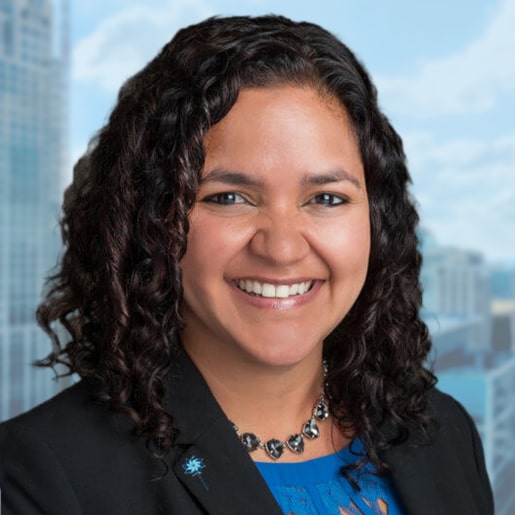Survey Finds Many Parents Concerned That Their Children Have Fallen Behind in School During Pandemic
The COVID-19 pandemic disrupted school for millions of students, forcing many families to juggle online learning, and many parents are concerned that their children have fallen behind at school, according to a Family Snapshot Survey. These concerns can result in increased household stress, but they also may open opportunities to create positive family experiences as parents support children in their learning.
The American Academy of Pediatrics (AAP), in collaboration with the Centers for Disease Control and Prevention (CDC), Prevent Child Abuse America (PCA America), and Tufts Medical Center, surveyed 3,000 parents and caregivers of children under the age of 18 in November 2020, March 2021, and July 2021. The survey measured the impact of the pandemic on family life, adverse childhood experiences, and positive childhood experiences. A new Family Snapshot report asked parents in March for their thoughts concerning their youngest school-aged child’s education. Find all the reports here.
Just over half of all the parents surveyed were concerned that their youngest school-aged child had fallen behind in school, especially parents whose child’s school arrangement was blended or fully remote. For those with children 5 to 9 years old, 51% of the respondents were concerned; at 10 to 14 years of age, it was 58%; and at 15 years or older, 53% of parents said they were concerned.
“The pandemic quickly turned people’s lives upside down, including as it pertains to education, forcing parents of school-aged children and teachers alike to alter well-established routines and search for new, and sometimes unconventional, ways for children to learn effectively,” said Dr. Melissa T. Merrick, president and CEO of PCA America. “This survey reinforces the need to equip adults — at home and at school — with resources to provide the safe, stable, and nurturing relationships and environments that children need to succeed academically, socially, and emotionally throughout life.”
Parents who reported certain household problems, including negative financial impact, no daily routines for their children, and intimate partner violence, were concerned that their child was falling behind in school at a higher rate than those not experiencing these problems. Pediatricians and pediatric health care providers may want to consider finding out about other household challenges when addressing parents’ concerns about their child’s education.
Parental concern about their youngest school-aged child falling behind in school was associated with spanking and feeling angry at their children. Pediatricians and pediatric health care providers might inquire about how parents view their children’s education, discuss how parents are dealing with concerns, and connect families with relevant resources.
Other findings:
- Regardless of parents’ concerns, almost all children did have opportunities to have fun at least once a week. Parents joined their children in various activities including educational, media viewing, and outdoor activities, regardless of level of concern for their youngest school-age child.
- Forty-three percent of parents who reported that their youngest school-aged child’s school arrangement was blended or fully remote were somewhat to extremely concerned that their child was falling behind compared with 24% whose child was home-schooled and 28% whose child attended school in-person full time.
- Work factors were associated with reported concerns about children falling behind in school. One in five (20%) of those who initiated a change in employment themselves were extremely concerned that their child was falling behind in school compared with 10% of those who had no change in employment and 14% of those who worked less due to employer decisions. A slightly higher proportion of those who teleworked had moderate to extreme concern (38%) than those who did not (31%).
- Survey results also showed that parents who had concerns about their child falling behind in school reported higher levels of stress themselves. Of parents who reported extreme concern, 51% reported that they felt stressed or nervous most of the time or always since the beginning of the pandemic or they felt difficulties were piling up so high that they could not overcome them, compared with 30% of parents with no concern who reported these feelings.
- Parents in households with children with special health care needs reported somewhat to extreme concern at a higher rate (44%) compared with parents in households without children with special health care needs (32%).
Many children have returned to in-person learning, and those who work with children and families should be ready to connect with parents about learning and mental-health concerns.
Resources for Pediatricians
- AAP Voices Blog: Pandemic Exposes School Struggles for Many Children
- Partnering with Schools Can Ease Challenges for Children with Chronic Illnesses
Resources for Families
About the American Academy of Pediatrics
The American Academy of Pediatrics is an organization of 67,000 primary care pediatricians, pediatric medical subspecialists and pediatric surgical specialists dedicated to the health, safety and well-being of infants, children, adolescents and young adults. For more information, visit www.aap.org.
About Prevent Child Abuse America
Prevent Child Abuse America is a leading champion for all children in the United States. Founded in 1972 and headquartered in Chicago, we are the nation’s oldest and largest organization dedicated to the primary prevention of child abuse and neglect, working to actively prevent all forms of child abuse and neglect before they occur. Our success is founded on a nationwide network of state chapters and nearly 600 Healthy Families America home visiting sites, which directly provide parents and caregivers a wide variety of services and resources that help children grow up to be productive, contributing members of their communities and society. Our comprehensive approach is informed by science—we translate and disseminate innovative research to promote proven solutions that our vast network then puts into action. And we raise public awareness and advocate for family friendly policies at the national, state and local levels to support transformative programs and promote the conditions and contexts that help children, families and communities across the country thrive.
About Tufts Medical Center and Tufts Children’s Hospital
Tufts Medical Center is an exceptional, not-for-profit, 415-bed academic medical center that is home to both a full-service hospital for adults and Tufts Children’s Hospital. Conveniently located in downtown Boston, the Medical Center is the principal teaching hospital for Tufts University School of Medicine. The Medical Center features a level one trauma center with rooftop helipad, the largest heart transplant center in New England and a renowned research program, ranking among the top 10 percent of independent hospitals to receive federal research funding. Tufts Medical Center is a founding member of Wellforce. For more information, visit www.tuftsmedicalcenter.org.



